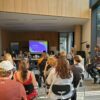Cooperating with(in) arts and culture
Practice-based alternatives
Diversity, inclusion, interculturality and collaboration are increasingly being used as “buzzwords” in the cultural sector. How can cultural professionals appreciate, produce and use knowledge connected to those concepts in an autonomous and emancipated way? The huge increase of European and international cooperation in the culture fields in particular requires reflexive, critical and sensible ways of working together (between diverse organizations and professionals, artists and audiences) to develop alternatives to a dominant productivist conception of producing projects.The material gathered in this thread shows multiple ways of working towards fairer collaborations in the arts.
Further readings
- Janssen Joris, (Re)framing the International. On new ways of working international in the arts, Brussels, 2018
- Leavy Patricia, Method Meets Art. Arts-Based Research Practice, Guilford Press, 2020 (Third Edition)
- Lenette, C., Arts-Based Methods in Refugee Research: Creating sanctuary, Springer, 2019
- Vujanovic Ana and Livia Andrea Piazza (ed.), A Live Gathering: Performance and Politics in Contemporary Europe, Berlin: b_books, 2019
- IETM, On the move, “Beyond Curiosity and Desire, Towards Fairer International Collaborations in the Arts”, 2018 : Link
Keywords
Contributions
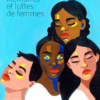
Mémoires et luttes de femmes (Memories and Struggles of Women)
Keywords: creative inquiry, emotion, non-mixity, ordinary experiences, sharing experiences, testimonies and memory
A method to redefine references in terms of struggles, pride, resistance, resilience, and women’s capacities, beyond the great figures and stories usually put forward in history
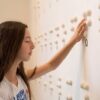
Dialog im Dunkeln – Dialogue in the Dark
Keywords: blindness, disability, inclusion
In this exhibition, sighted people gain a better understanding of how visually impaired and blind people experience the world and visitors become aware of the limits of their own perception in everyday life, which is strongly focused on visual information.
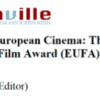
Teaching European Cinema: The European University Film Award (EUFA) Project – Dossier
Keywords: european cinema, teaching methods, transnational community building, transnational teaching, university cooperation
This reports indicates how the awareness of being part of a pan-European teaching project influences the discussions and learning experiences even of those participants that remain in their usual learning environments and national groups during the whole project.
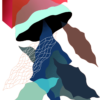
Reshape
Keywords: artistic and social innovation, arts ecosystem, collaborative models, solidarity, sustainability
The aim of RESHAPE is to imagine an alternative to the European arts ecosystem by rethinking its instruments and collaborative models, placing them in line with artistic and social innovation and the principles of fairness, solidarity, geographic balance and sustainability.
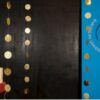
European University Film Award
Keywords: european film, transnational teaching, university cooperation
The project and award are based on the idea to support the transnational dissemination of European film culture, to give young Europeans an insight into different European life conditions and a sense of community through the shared enjoyment and discussion of films.
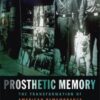
Prosthetic Memory. The transformation of American remembrance in the age of mass culture.
Keywords: collective memory, cultural memory, empathy, mediation of knowledge
Landsberg claims that in modernity, mass media create the possibility for new forms of social memory: By creating an immediate, visceral and affective engagement with past events, media settings such as cinemas or experiential museums provide what she labels ‘prosthetic memory’.
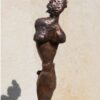
Fribourg declaration et reviewing
Keywords: cultural democracy, cultural diversity, cultural rights, recognition
In 2007, the "Fribourg group” concluded that the universality and indivisibility of human rights still suffer as a result of the marginalization of cultural rights and published the Declaration of Cultural Rights as a legal framework for cultural rights.
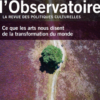
Ce que les arts nous disent de la transformation du monde (What the arts say about world transformations), Revue L’observatoire n°57, la revue des politiques culturelles
Keywords: art and ecology, arts and sciences, biodiversity, cities and utopia/dystopia, the living
This magazine gives the floor to artists and philosophers focused on climate change and biodiversity in relation to art. They tell us how the world is changing, the main issues and their vision on a new world they are expecting.
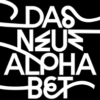
The New Alphabet
Keywords: artistic research, digitalization, global thinking, knowledge production, languages, learning practices, situated knowledge
The New Alphabet is intended both as a diagnosis and a provocation: vernacular, opaque, or marginalized ways of knowing are increasingly subsumed into abstract universalizing structures. What strategies of resistance against such processes of forced alphabetization exist or could be developed? And which role do artistic methods of appropriation and creolization play in this context?”
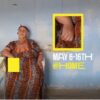
Freiburger Filmforum
Keywords: decoloniality, ethnology, eurocentrism, transcultural cinema
The film festival is particularly interested in paying attention to groups, cultures and milieus that are often overviewed by the ethnocentric gaze of many European film festivals.
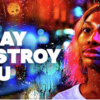
I May Destroy You
Keywords: intersectional feminism, LGBTQIA+
Still a rare example of art that challenges patriarchy and the violence this dominant system produces in everyday life from a Black FLINTA (and in parts queer) perspective.
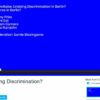
Roundtable: Undoing Discrimination? Diverse in Berlin?
Keywords: diversity, inclusion, individual and collective stories, institutional change, power structures in arts and culture
Are diversity measures in cultural institutions just another set of methods of solidifying what they claim to change? What are the inconspicuous formal routines, the small informal habits, the official and unofficial rules that create the feeling of running into a wall that one claims is not there?
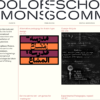
School of Commons
Keywords: collaborative and non-hierarchical knowledge production, peer learning
The SOC community focuses on matters surrounding the production and mediation of knowledge with a common interest in self-directed practices and on collaborative and non-hierarchical forms of knowledge production
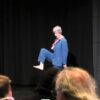
Searching for the Fountain of Age: A Danced lecture
Keywords: aging in arts and culture, danced lecture, embodied knowledge, sharing knowledge through arts
Susanne Martin proposes an alternative way of lecturing and transmitting her knowledge with a very situated approach : To look and sense her research object, the “fountain of age”, she divides it into 2 smaller fountains : the Fountain of Knowledge (talking) and the Fountain of Experience (dancing).
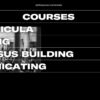
Anthropocene Curriculum
Keywords: anthropocene, experimental co-learning, international project, knowledge production, knowledge sharing
What should a body of “earthbound” knowledge contain that traverses from the global to the local and back?

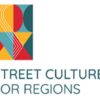
Street culture for regions
Keywords: entrepreneurship, vocational education and training
A set of different resources that can help discovering, explaining and analyzing the connection between entrepreneurship and street culture
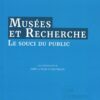
Le souci du public (Taking care of audiences)
Keywords: audiences, care, museum, reflexivity
Taking care of the audiences" deconstructs the meaning of care in the cultural sector and looks at the diversity of practices underpinned by definitions of "audiences" that can diverge sharply (is the audience a target, a state, a regime of discourse, a condition?)
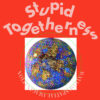
Stupid Togetherness
Keywords: collaborative practice, commonness, embodied knowledge, playful urban exploration, psychogeography, public space, subversion, urban pedagogy
The project Stupid Togetherness seeks to question existing spatial mechanisms and explore the possibilities for collaborative engagement within the urban spaces.
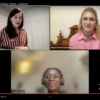
Arkivens dag 2021 – Dolda röster i arkiven (International Archives Day – Hidden voices in the archives)
Keywords: black history, collaboration, cultural heritage, history, museum, women’s history
Whose perspectives are saved today and whose lives are found in our archives? What strategies can we have to fill the blind spots in the archives? How can we document the present to make sure that tomorrows history books can show our diverse society?

